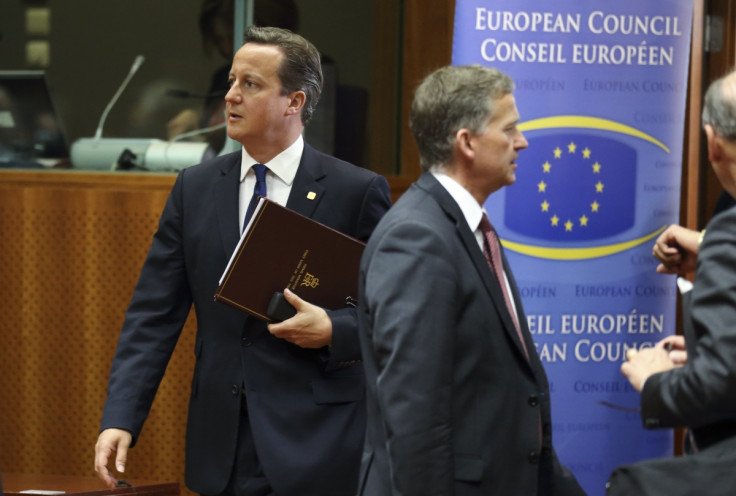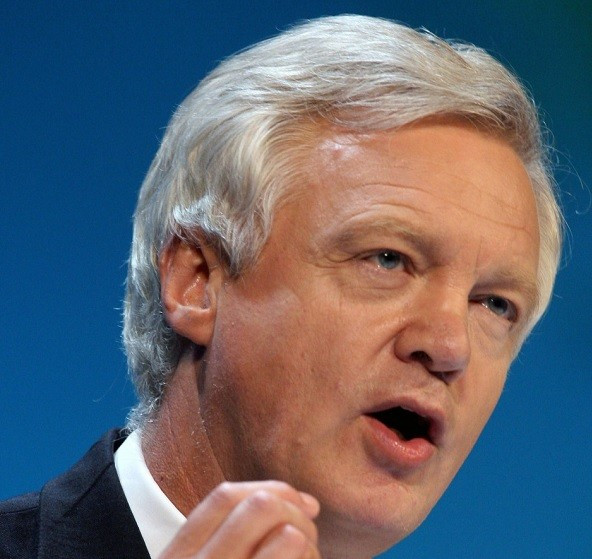Cameron's EU Defeat Signals Start of Bigger Battle With MPs and Europe

David Cameron has been given a clear indication of the size of the battles ahead with both his own backbenchers and other EU leaders in the wake of his failed campaign to stop Jean-Claude Juncker becoming European Commission president.
As the prime minister insisted he could work with Juncker, and phoned to congratulate him on his job, his Euro rebels started laying down red lines they expected him to adopt in vital negotiations before the promised in-out Euro referendum.
And it was confirmed that, to get the scale of changes Cameron wants to head an "in" campaign, he would have to persuade all other 27 leaders to back his reforms.
The assault was led by leading Eurosceptic David Davis who said Cameron's crushing 26-2 defeat over the appointment of Juncker had made the chance of those negotiations enabling the UK to stay in the EU "very, very difficult".
And he set out the sort of fundamental, constitutional changes the prime minister's critics will expect if they are to back him, and which would undoubtedly prove unacceptable to many other EU leaders.

They included what amounted to a veto over future Brussels laws and radical treaty re-negotiations which would need the backing of all 28 states to happen.
Davis told the BBC there was a "series of bottom lines" on issues including repatriation of powers, the right to opt out, the free movement of people and the huge burden of regulation on British industry.
"But was also need constitutional changes to allow us in the future, if something challenges our national interests, to say 'no, up with this we will not put'... and that is going to be the hardest thing to deliver," he said.
His proposal would, in effect, mean all EU leaders agreeing to give states a veto or an opt out of anything they did not support, and few believe all 28 members would be likely to agree such a fundamental change.
The prime minister's spokesman confirmed that the sort of changes the prime minister would be pressing for would require unanimity, but added that there was a general understanding across Europe that treaty change was needed.
The problem now facing Cameron is that if, in order to win support for reforms from all 27 other states, he falls short of demanding the sort of radical reforms his Eurosceptics are calling for, they will accuse him of failure and demand he leads the "out" campaign in the referendum.
So far the prime minister has refused to publicly announce he would be prepared to lead an "out" campaign, and unless he does there is the danger other leaders will not take his threats seriously.
One Brussels official told the Independent newspaper: "The threat to leave may prove an empty one. It is not the best way to get what you want. Cameron may find that other people will call his bluff."
However, others have appeared ready to go some distance to help Cameron after his defeat, with Germany's foreign minister Wolfgang Schauble, insisting such an outcome would be unacceptable and unimaginable and that his country would do everything in its power to keep Britain in the union.
The prime minister will face his critics in the Commons and will echo his remarks in a Daily Telegraph article in which he stated: "As for my personal standing in Europe, this has proved one thing beyond doubt: I do what I say, and I stick to it. Anyone in Europe who thought I was going to back down or blink is now thinking again.
"It is important that the British people, and our European partners, know that about me, before the negotiations begin in earnest if I am re-elected as prime minister."
And that appears to have been his driving aim; to win over Eurosceptic and Ukip-leaning backbenchers and voters even if it meant "glorious defeat".
But the size of his task is now absolutely clear. He either has to win over all 27 other nations to a genuinely fundamental reworking of the EU, which seems highly unlikely, or water down his demands.
If he fails to win unanimity, or bends in his demands, he will then be accused of failing to deliver and will come under huge pressure from his own Eurosceptics to lead Britain out of the EU. Which is precisely what many of them have been angling for all along.
© Copyright IBTimes 2025. All rights reserved.






















